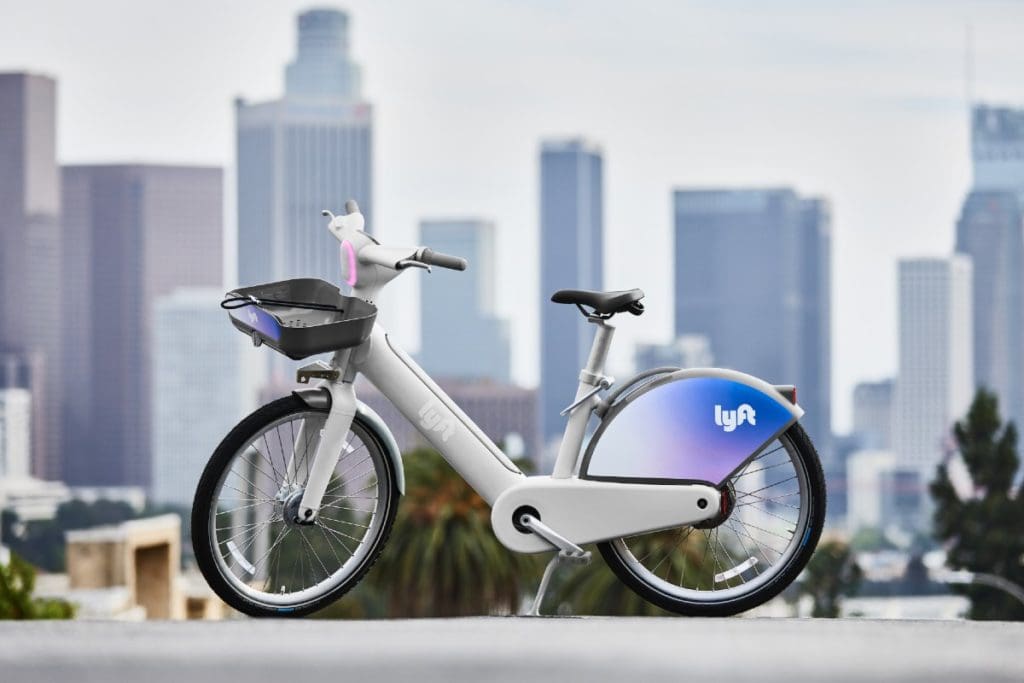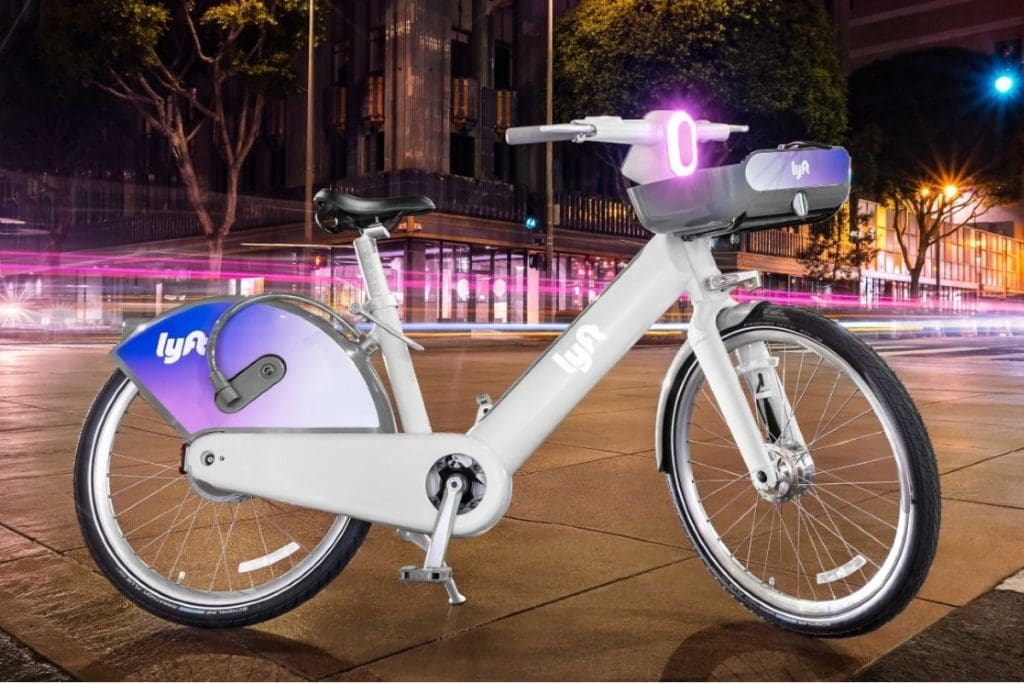Lyft Unveils its Latest Share E-Bike

San Francisco, California, USA
Lyft may not yet be in Australia, but as it is by far the biggest bike share provider in the USA, and part of a ride share/bike share company with a US$19.3 billion (A$25.7 billion) market capitalisation, the launch of their latest model is still significant.
The new model, launched in San Francisco on 6th June features a much longer battery life, a lower centre of gravity and a saddle that can better accommodate smaller riders.
There’s no gear shifter. The electric motor mounted in the rear wheel has sensors that automatically adjust to the rider’s torque, cadence and speed. A digital console mounted on the handlebars will alert riders to things like local speed limits and out-of-bounds parking zones. Reflective white paint, like the kind found on traffic signs, provides better visibility.

“We obviously learned a lot over the last few years,” said John Zimmer, Lyft’s president and co-founder. “This is the first piece of hardware we designed from the ground up to take those learnings and create an experience that is super safe.”
The first 100 bikes will arrive in San Francisco’s Bay Wheels system as part of a multi-week public beta test, according to the company. A wider rollout is slated for Chicago’s Divvy system, with more cities added by the end of 2021. New models will replace old e-bikes as they wear out.
There’s a lot riding on these sleek new e-bikes, which come nearly three years after Lyft’s acquisition of Motivate, the largest bike share operator in North America and two years after introducing the first e-bikes into its fleets. That roll-out was rough. In 2019, dozens of reported brake-related injuries in New York City led Lyft to pull roughly 1,000 electric Citi Bikes from the streets, a move it repeated in Washington D.C., and San Francisco. That brake issue eventually led to at least six lawsuits. The company pulled its Bay Area bikes again a few months later due to a few catching fire.
A spokesperson said that the new bikes have been exhaustively tested to meet U.S., Canadian and international safety standards. They also feature parts that are easier to disassemble and repair and internal sensors that flag repair needs to technicians.
E-bike technology is facing a pivotal moment. As fears of Covid-19 found people looking for transportation alternatives, a slew of manufacturers entered the e-bike market in the U.S., and sales of electrically assisted bicycles took off during the pandemic, growing 145% from 2019 to 2020.
In May 2021, both Citi Bike (NYC) and Divvy (Chicago) broke their previous single-day bike share ridership records.
Most of this article was first written by Laura Bliss for Bloomberg CityLab
